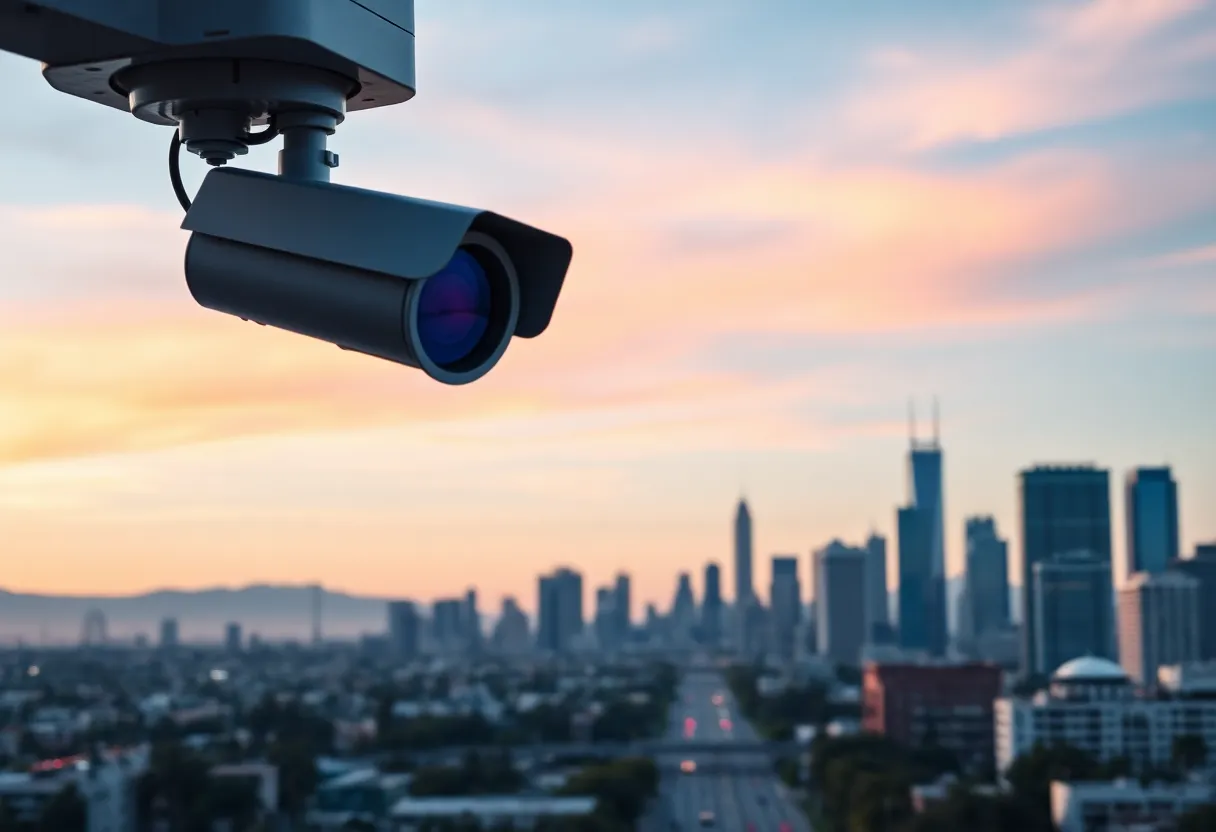News Summary
The L.A. County Board of Supervisors has enacted new measures to tighten regulations on law enforcement’s use of license plate data, aiming to protect citizens’ privacy rights. The new motion mandates annual privacy training for deputies accessing license plate information and prohibits its use for non-criminal immigration enforcement. Concerns have been raised over the sharing of data with federal agencies, prompting the Sheriff’s Department to oversee these practices. The decision marks a significant step toward ensuring that sensitive data is utilized responsibly while addressing ongoing issues surrounding data privacy and law enforcement.
Los Angeles, CA – The L.A. County Board of Supervisors has enacted a new measure that places stricter regulations on the use of license plate data by law enforcement officials. This decision aims to increase privacy protections and lessen the misuse of sensitive data, particularly concerning immigration enforcement.
The approved motion, which requests the Sheriff’s Department to oversee the use of license plate data collected from automated cameras, mandates that deputies receive annual privacy training for accessing this information. Additionally, the measure specifies that license plate data cannot be used for non-criminal immigration enforcement and must be deleted after 60 days unless it is associated with criminal investigations.
Concern has been growing over how law enforcement agencies use license plate data, particularly among those who share this information with federal immigration offices. It has been reported that around a dozen police and sheriff departments in Southern California have shared their license plate data with federal immigration agencies, raising serious privacy concerns.
Currently, the Sheriff’s Department operates 931 automated license plate readers throughout Los Angeles County. Sheriff Robert Luna will have the discretion to implement the board’s directives based on an upcoming report due in January. However, the department has stated that it has no “current” agreements with federal agencies concerning the sharing of this data.
This new motion aligns with a broader context of legislation intended to protect individuals from potential violations of their privacy rights. A California law established in 2015 prohibits the sharing of plate data with out-of-state or federal entities, reinforcing the necessity for local compliance. In addition, a recent statewide legislation known as Senate Bill 274, which aimed to impose stricter limits on license plate data use, was vetoed by the governor.
The Los Angeles Police Department has invested $400,000 in new license plate reader technology this year, but not all support the use of such systems. Some city council members have expressed opposition to the LAPD’s acquisition of license plate readers due to the risk of their deployment in immigration enforcement efforts.
An essential distinction to note is that the county motion does not extend its regulations to police departments, which operate under oversight from their individual local councils. This means that while the Sheriff’s Department must comply with these new regulations, police departments may still exercise more flexibility in their data-sharing practices.
All across California, law enforcement agencies have faced scrutiny for allegedly violating state laws concerning the sharing of license plate data. The Attorney General’s office, led by Rob Bonta, has taken action against several agencies found in violation, including lawsuits against departments like the El Cajon Police Department. Furthermore, a grand jury in Sacramento County revealed issues with the sharing of license plate information with out-of-state entities, highlighting the lax adherence to state privacy laws by the Sacramento Sheriff’s Office and Police Department.
Investigations such as the one conducted by the grand jury have shown that Sacramento law enforcement utilizes approximately 170 cameras to collect substantial amounts of license plate data. Critics argue that the tracking capabilities of law enforcement, especially through such sensitive information, pose threats to individuals’ privacy and civil liberties.
As violations of state privacy laws by law enforcement gain prominence as a critical issue, recent findings paint a concerning picture regarding the safeguards—or lack thereof—surrounding the use of automated license plate reader data. The L.A. County Board of Supervisors’ decision marks a significant step toward enhancing privacy protections for citizens as discussions around immigration enforcement and data privacy continue to evolve.
Deeper Dive: News & Info About This Topic
HERE Resources
Tensions Rise in Los Angeles Amid Immigration Raids
AI-Powered Bus Lane Enforcement Launches in West Hollywood and Santa Monica
Additional Resources
- Los Angeles Times: LA County Moves to Limit License Plate Tracking
- Wikipedia: License Plate Recognition
- LAist: License Plate Readers Coming to West LA
- Google Search: License Plate Data Privacy California
- OC Register: Police Flout State Law on License Plate Privacy
- Google Scholar: License Plate Data Privacy
- Los Angeles Times: Are There Automated License Plate Readers in Your City?
- Encyclopedia Britannica: License Plate Recognition
- The Guardian: California Police and Automated License Plate Readers
- Google News: Automated License Plate Readers California

Author: STAFF HERE HOLLYWOOD
The Hollywood Staff Writer represents the experienced team at HEREHollywood.com, your go-to source for actionable local news and information in Hollywood, Los Angeles County, and beyond. Specializing in "news you can use," we cover essential topics like product reviews for personal and business needs, local business directories, politics, real estate trends, neighborhood insights, and state news affecting the area—with deep expertise drawn from years of dedicated reporting and strong community input, including local press releases and business updates. We deliver top reporting on high-value events such as the Hollywood Bowl summer concerts, the Hollywood Christmas Parade, film premieres at TCL Chinese Theatre, and festivals at the Magic Castle. Our coverage extends to key organizations like the Hollywood Chamber of Commerce and Visit Hollywood, plus leading businesses in entertainment, dining, and tourism that define the local economy. As part of the broader HERE network, including HERELosAngeles.com, HEREBeverlyHills.com, HEREAnaheim.com, and HEREHuntingtonBeach.com, we provide comprehensive, credible insights into Southern California's dynamic landscape.





